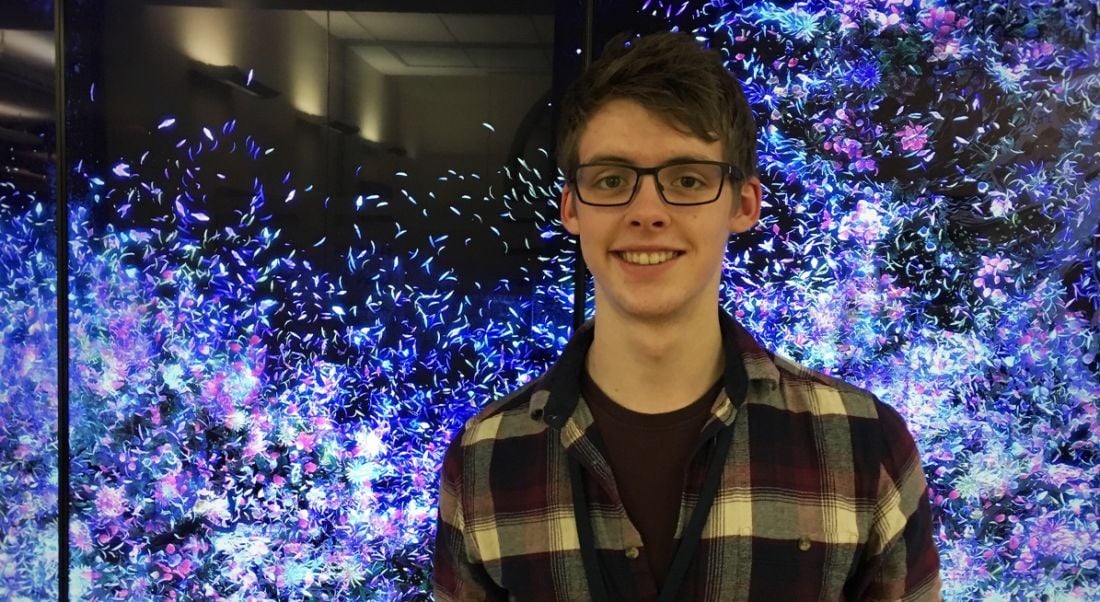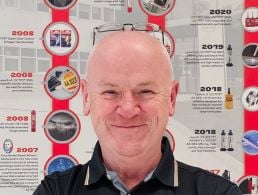Tech is one of the fastest-growing sectors in Ireland, with a workforce to match. But who are the people working in tech?
Kieran Blackmore, a technical analyst at Fidelity International, has grown up with the internet age. It’s with technology that he gets to be his most creative. He turned that into a career.
What drew you to this career area?
I grew up with technology as it progressed. It has always been something that has fascinated me and presents an opportunity to be innovative and creative in a space that continuously expands. Technology is also something that I enjoy and use regularly outside of work. It looked to be one of the best and most enjoyable areas to pursue a career in.
What’s the best thing about working in this area?
Personally, I like the challenges that it presents. There are often new problems that I had not previously faced that require me to think differently in order to find ways to rectify them and prevent them from happening again.
I like being able to question if processes can be made more effective and be done more efficiently, and looking at new ways to design applications and the ways that they are used. This is generally very rewarding, particularly when I’m involved in larger projects.
What’s the most exciting development you’ve witnessed in this sector since you started working in it?
The recent increase in the demand for automation has been an exciting development to be involved with. It provided the opportunity for some fresh thinking around the ways that our customers interact with our applications.
At Fidelity International, I have been able to create more user-friendly interfaces that allow for self-service with our more common requests and tasks. This has given me the chance to see the technology from the user’s perspective.
What aspect of your job have you struggled to get to grips with?
Having to learn a completely new set of technologies from the ground up has been a big challenge. I joined my current team as an apprentice and had far less technical knowledge than the rest of my team.
The technologies that we use at Fidelity International have required me to learn new programming languages and put these into practice in high-pressure situations. This has tested my technical knowledge, while still developing it further.
If you had the power to change anything within the STEM sector, what would that be?
I would make the different areas of STEM be known more for their social factor and for the interactions that take place between them. I feel that these areas can be considered more separate from each other than they are, particularly in today’s media.
It can often be misinterpreted that core sciences are purely theoretical, and they have a lack of excitement surrounding them. In reality, they are hugely practical, exciting and innovative.
Which of your personality traits makes you best suited to your job at Fidelity International, and to this sector?
I think one of my strongest traits is my drive to be creative. This merges well with the work that I do – I enjoy building a mental picture of an end product and then being able to make it a reality.
I find that, in the majority of scientific and technology-based areas, people who are creative and able to ask ‘Why?’ will do well, which makes these great areas to work in.
Is there something in your personal life that helps you in your job?
I work with a lot of different technologies outside of work. This can vary, from day-to-day use of a computer to developing apps or recording music. The different parts all help to develop my technical knowledge and creativity.
Playing music has also helped develop my focus, which is key while I am still new to working in technology and to all of the different areas that are available for me to learn about.
How do you make connections with others in the STEM community?
There is a good chance to collaborate within my current role – it would be common for me to be working with other teams to bring a solution together – and this helps to build a network, and often results in people sharing their knowledge and experience within groups.
Thanks to social media, there are also many good opportunities to network with people outside of the office. This is also becoming more of a feature within the workplace, with multiple companies hosting knowledge transfer sessions.
Has mentorship or coaching been important in your career?
Mentoring has been a huge part of my career, particularly starting as an apprentice.
I have worked closely with members of my team as part of regularly set-up sessions. Members of my team, and other teams, will often take the opportunity to let me shadow them on new tasks that I might not yet have had the chance to take part in.
I have also worked with a mentor from a completely different part of the business, which has helped me to understand the impact that my role has further down the line and within the day-to-day processes of Fidelity International.
Additionally, I have been given the chance to mentor new members of staff as they have joined the business, and to share my experiences with them.
What advice would you give to someone thinking about a career in this area?
Anything can be done. Technology is progressing at an incredibly fast pace and working in that space provides endless possibility – this could be from a brand new idea or simply asking why something is still done in a particular way and seeing a way that it could be improved.
Technology is key in society and is a very exciting place to work.
Looking for jobs in tech or science? Check out our Employer Profiles for information on companies hiring right now and sign up for our Career Republic e-zine for a weekly digest of sci-tech careers news and advice.




